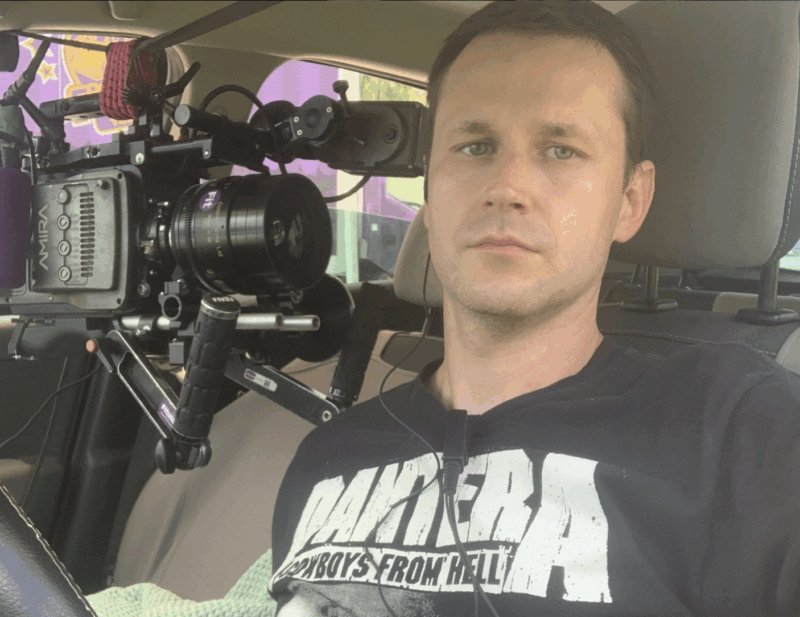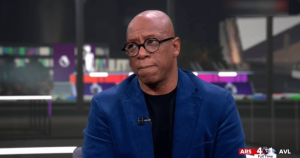Yevgeny Gratvol talks about writing and directing the short film ‘Holocaust Day,’ and being a part of the digital age

Director Yevgeny Gratvol. Photo Courtesy of Yevgeny Gratvol.
Filmmaker Yevgeny Gratvol chatted about writing and directing the short film “Holocaust Day,” and being a part of the digital age.
The movie stars Meyran Menkes, Bogdan Yoffe, Maor Cohen, and Evyatar Betzaleli. It features cinematography and editing by Nati Amos with original music by Avi Wiseman.
What inspired you to write and direct “Holocaust Day”?
The inspiration for the film “Holocaust Day” came from real events I witnessed while I was a new immigrant student at a school in Israel.
The class put on a play to mark the annual Holocaust Remembrance Day, which is a day of national mourning in Israel. The teacher assigned roles to the students in the play.
Most of the students were assigned the role of Jewish prisoners of Nazi concentration camps, a role that came with prisoner uniforms and the infamous yellow Star of David badge.
One student, a shy and introverted recent immigrant from Eastern Europe, was given the role of a Nazi guard who was supposed to abuse the prisoners. His role, of course, came with a handcrafted black SS uniform.
He got the role because he had blond hair and blue eyes, a “stereotypical Aryan” look in a class where most of the students were of Middle Eastern Jewish origin. This student, who was unpopular to begin with, became abused by the other students because of his role.
He tried to quit several times, but the teacher pressured him to stay on because it was a “team effort.”
Eventually, he went on stage and performed, but after the play and until the end of high school, everyone called him “the Nazi”.
The irony of this entire incident: the tables were turned, and the ones who were supposed to be the victims became the perpetrators, and vice versa.
Moreover, the teacher who was trying to put on a play to teach the other students about the horrors of racism fell into this trap herself without even realizing it.
For many years, I thought about this event and wanted to turn it into a film, but because of the controversial subject matter, I didn’t dare to write it for a long time.
What did this movie teach you about yourself?
What the film taught me is that I tend to express issues that society likes to avoid.
That is to say, I don’t intentionally seek out taboo subjects (and every society has its own taboos), and I am sure that my film career could have been easier if I had chosen to deal with more “conventional” subjects.
I understand that cinema, like all art, is supposed to express all sides of human existence, including its aggressive and dark side.
I would rather tell the truth than be in a comfortable place. Comfort is deceiving, but challenges make us live life to the fullest.
What was it like working with Ariel Lavi and Avi Wiseman (for the music)?
Ariel Lavi is a young, very talented producer who is not afraid to take risks and to go all the way with a vision he believes in.
Without Ariel, this film would not have been made. He encouraged me throughout the production and gave the project everything he had.
Avi Wiseman, the film’s composer, is one of the most talented and interesting composers I’ve met. Our vision of the film’s musical aesthetics and themes was completely in sync.
It is very rare to find a composer who understands the musical subtleties that affect the subconscious of viewers.
How does it feel to be a filmmaker in the digital age? (Now with streaming, technology, and social media being so prevalent)
Technology is a neutral tool that depends on how we use it. To a certain extent, technology is a reflection of us.
The accelerated technological development we are experiencing today can help filmmakers create independent cinema that is not enslaved to large economic forces that only churn out art for profit.
As Francis Ford Coppola once predicted, the day will come when any girl from a small, forgotten town will be able to make a movie with cheap, accessible cameras, and I don’t see anything negative about that.
Technology helps improve our chances in the face of challenges.
How do you use technology in your daily routine?
I try to minimize my use of the smartphone and social media as much as possible.
While they are a crucial component to function in society, too much can put you in a “digital purgatory,” so to speak.
The last decade has been a low point for communication between people.
The technology that has allowed us to connect with people on the other side of the world has also alienated us from the person closest to us in the same room and, most importantly, from ourselves.
What do your plans for the future include?
I’m currently co-writing an original concept for a trans sci-fi series.
It’s my first project written completely in English, and we will be looking to promote it in the U.S market. I’m also working on my first feature film.
What is your advice for young and emerging filmmakers?
Never give up, fight for your vision even when it seems like it has no chance.
Technically, cinema is a collective art and an industry that depends on the teamwork of many people, so it is important to create connections and friendships with people in the same line of work.
I would suggest that aspiring filmmakers gain experience on set in a variety of roles to understand the specifics of each role.
This will make it easier for you as directors and help build connections for your own productions in the future.
What does the word success mean to you?
Success for me is when an idea that starts as a thought in my head becomes, through hard work, a physical reality.
Nothing can compare to the feeling of completeness when filming is finished, and after editing, you see the reality you created on the big screen.
What would you like to tell our readers about “Holocaust Day”? (What’s the one thing you want them to get out of it)
My film is about identity and belonging in the face of social isolation, and the role of stereotypes in perpetuating an endless cycle of violence and hatred.
If I could sum up my film in one sentence, it would be: “If you constantly call a person a dog, don’t be surprised that eventually he will start barking and even biting.”
Yevgeny Gratvol talks about writing and directing the short film ‘Holocaust Day,’ and being a part of the digital age
#Yevgeny #Gratvol #talks #writing #directing #short #film #Holocaust #Day #part #digital #age






